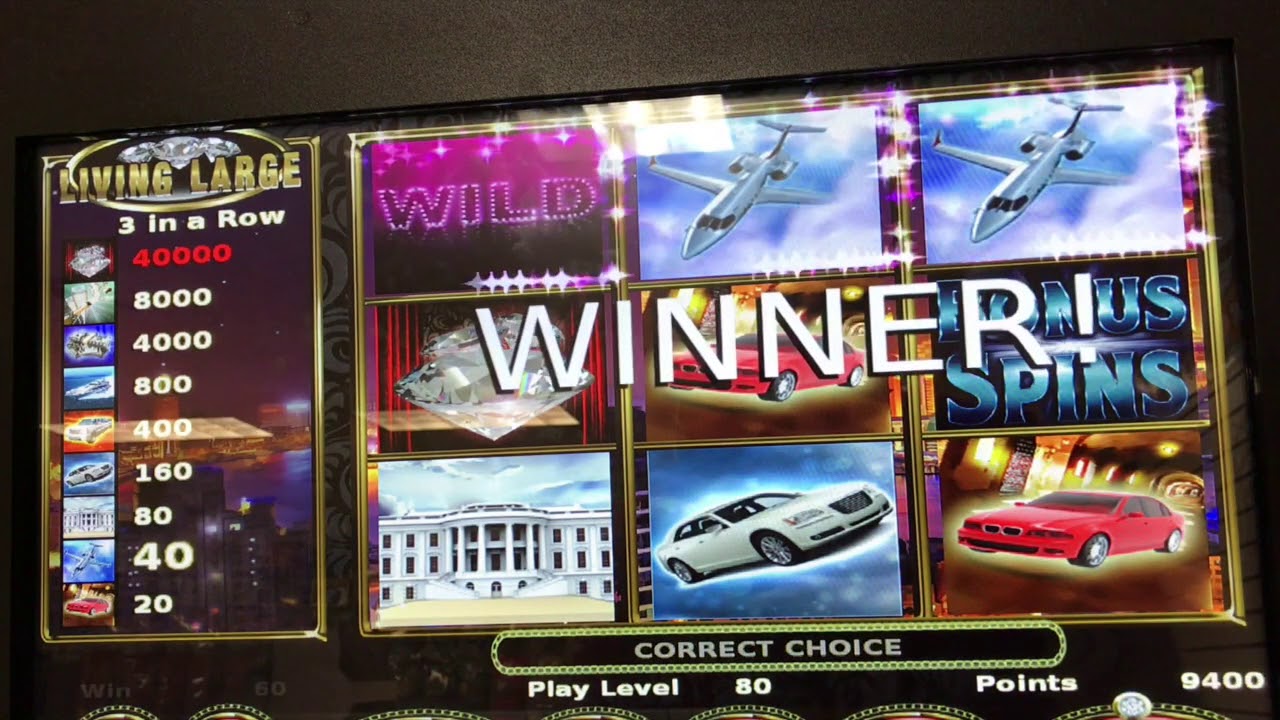Are Poker Machines Legal In Pa
If one group gets its way, it soon might be legal to collect video poker payouts at bars, clubs or even truck stops.

The Pennsylvania Video Gaming Association formed last year to lobby for legalization, taxation and regulation of what it describes as an 'already-present illegal industry.'
Video poker machines are illegal in Pennsylvania and other states if they give payouts.
In 2015, two Nazareth-area social clubs were under scrutiny for allegedly partaking in such activities. But state Sen. Lisa Boscola, D-Lehigh/Northampton, says the industry has existed for years and isn't going to go away -- so it's best to legalize it and spread the revenue benefits.

- Jul 26, 2018 The cash payout, coupled with the poker machines being games of chance, made the operation illegal under Pennsylvania law. On the day that law enforcement executed the search warrants, John Biros went to various establishments not yet served with warrants and removed the machines’ internal circuit boards, attempting to hinder law enforcement.
- Pennsylvania lawmakers enacted sweeping legislation yesterday that authorizes as many as 61,000 slot machines - the most in any state east of Nevada - for horse tracks, resorts and slot parlors.
Andy Goodman, government relations spokesman for the video gaming association, said the group was formed Dec. 1 and is putting together legislation to be considered by lawmakers before a new budget is set for approval at the end of June.
PA Online Poker – Legal Poker Sites In Pennsylvania 2020 After a long delay, Pennsylvania poker fans finally got the chance to legally play cards online with the launch of PokerStars PA on November 4, 2019. The cash payout, coupled with the poker machines being games of chance, made the operation illegal under Pennsylvania law. On the day that law enforcement executed the search warrants, John Biros went to various establishments not yet served with warrants and removed the machines’ internal circuit boards, attempting to hinder law enforcement. Today, Pennsylvania online gambling is completely legal. In October 2017, Pennsylvania governor Tom Wolf signed House Bill 271. The landmark legislation authorized retail and online sports betting, online poker, and online casinos in Pennsylvania.
Goodman is hopeful for approval. He said the legislation is modeled off an Illinois law that he says brought the state more than $300 million in revenue from video poker machines in 2016. In addition, Goodman said, legalizing small games of chance brought Illinois hundreds of jobs.
'In addition to jobs, legalizing this type of gaming revitalized many bars and clubs, especially veterans clubs,' he said.
Are Poker Machines Legal In Pa State
Legalizing small games of chance has been a Pennsylvania issue since the 1980s, Goodman said. Similar legislation was brought before Gov. Bob Casey in the 1990s and was denied.
The video gaming association is prepared for push-back from casinos that might consider legalization a threat, Goodman said. Many casinos have claimed it would cut into their business.
Boscola disagrees. She said video poker in clubs and bars serve an entirely different clientele than casino-goers. She said the two could work side by side successfully.
Are Poker Machines Legal In Paris

Are Poker Machines Legal In Panama
Sands Casino Resort Bethlehem spokeswoman Julia Corwin did not immediately return a phone call seeking comment on the matter.
Goodman believes the time is ripe for legalization as many Pennsylvania politicians are pushing for tax relief. Video poker revenue could help fill the state's budget gaps, he said.

Depending on the specifics of the legislation, Boscola said she would consider supporting such a bill. For example, she said, if the bill also legalizes online gaming, she would vote against it because of the addiction online gambling can cultivate.
'Video poker is happening at a lot of bars right now. State police estimate there are 40,000 machines that exist but are illegal,' she said. 'Moving forward, it is important to legitimize something that is already happening. By taxing and licensing, more people would benefit.'
Boscola said a woman once told her that her husband spent his entire paycheck on video poker, but help was unavailable because the practice is illegal. Legalizing such activity would also allow for addicted individuals to receive help, she said.
Prior legislation
Boscola worked to amend a law that now allows games of chance -- games that she said are 'fun, spirited and harmless.'
The bill, which was signed into law by Gov. Tom Corbett, allowed betting in nonprofit organizations if the entry was $20 or less, had less than 100 participants and the pooled profits were awarded to contestants or a charity.
But in 2011, authorities who raided Nazareth-area social halls also confiscated Super Bowl pools, even though the state law allows them.
'Ultimately, it's time to apply common sense to gaming,' Boscola said. 'And let's put that common sense, harmless fun into law.'
Ashleigh Albert is a freelance writer. Find lehighvalleylive.com on Facebook.
In a ruling handed down by Pennsylvania Judge Thomas A. James Jr. in Columbia County on Friday, it was ruled that Texas Hold’em is a game of skill and therefore not gambling under state law. The ruling sets an “excellent bar” for future poker litigation, according to Poker Players Alliance (PPA) Executive Director John Pappas.
The basic question, according to Judge James’ ruling, is whether poker is dominated by chance or skill. He commented “Simply, if chance predominates, Texas Hold’em is gambling. If skill predominates, it is not gambling.” In Pennsylvania, video poker machines are not allowed because their outcomes are primarily due to chance, not skill. In the case of Texas Hold’em, however, Judge James explained that extensive literature exists that describes winning strategies to play the game. He even cited Mike Caro’s “Secrets of Winning Poker” by saying, “the money flows from the bad players to the strong players.”
In his ruling, Judge James explains that the “dominant factor test” has traditionally applied to games of skill and cites multiple mathematical studies that prove it, including one linking “poker and economics.” An included study even explained that players receive equal amounts of premier and lackluster starting hands. However, “Beginning poker players rely on big hands and lucky draws. Expert poker players use their skills to minimize their losses on their bad hands and maximize their profits on their big hands.” In the end, Judge James asserts, “It is apparent that skill predominates over chance in Texas Hold’em poker.”
The defendant in the case, Walter Watkins, ran a $1-$2 No Limit Hold’em game out of his garage. No rake was taken, according to the PPA. Instead, players were encouraged to tip the dealer at the end of every hand based on the pot’s size, just as they would in conventional casinos. Only Texas Hold’em was played. Also identified in the case is Diane Dent, a dealer. Both have since been cleared of charges as a result of the ruling. Pappas told Poker News Daily, “Clearly, the judge had an understanding of how poker is played. Coming to this decision, to him, was not a far leap. The decision sets an excellent bar for us in the future.”
Watkins told the Associated Press, “It’s unfortunate we had to go through all this. We were arrested, taken out of our home. Shackled and spent a night in prison. All for playing poker.” Watkins and Dent were faced with 20 charges each. Leading up to the arrest of the pair, who the Associated Press identifies as boyfriend and girlfriend, an undercover Pennsylvania State Trooper took part in the game. Dent served as the dealer when the trooper attended and the case ultimately centered on whether Texas Hold’em is “unlawful gambling” according to Pennsylvania state law. It appears as if, for the time being, that question has been answered. No word of an appeal was given as of press time.
Cited in the case are a bevy of poker-related books, studies, and websites, including HoldemSecrets.com, “Explaining Winning Poker: A Data Mining Approach,” and “Poker and the Unlawful Internet Gambling Enforcement Act.” The UIGEA, which was passed in 2006, defers to existing state and federal laws when defining what is “unlawful internet gambling.” Pappas claimed that the PPA was looking into ways to incorporate Friday’s ruling in Pennsylvania into other legal battles throughout the country. The PPA operates an extensive Litigation Network that matches embattled poker players with local lawyers. It utilizes the power of numbers to be able to pool knowledge of case law as well as the implications of precedents like the one set on Friday.

Peter Campana represented the defendants, while Thomas Leipold served as counsel for the State of Pennsylvania.